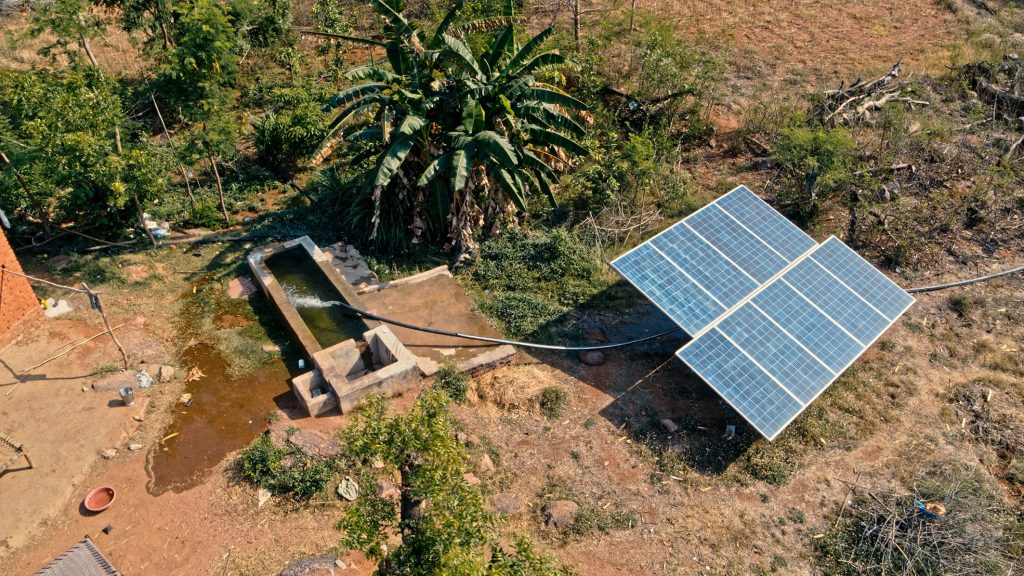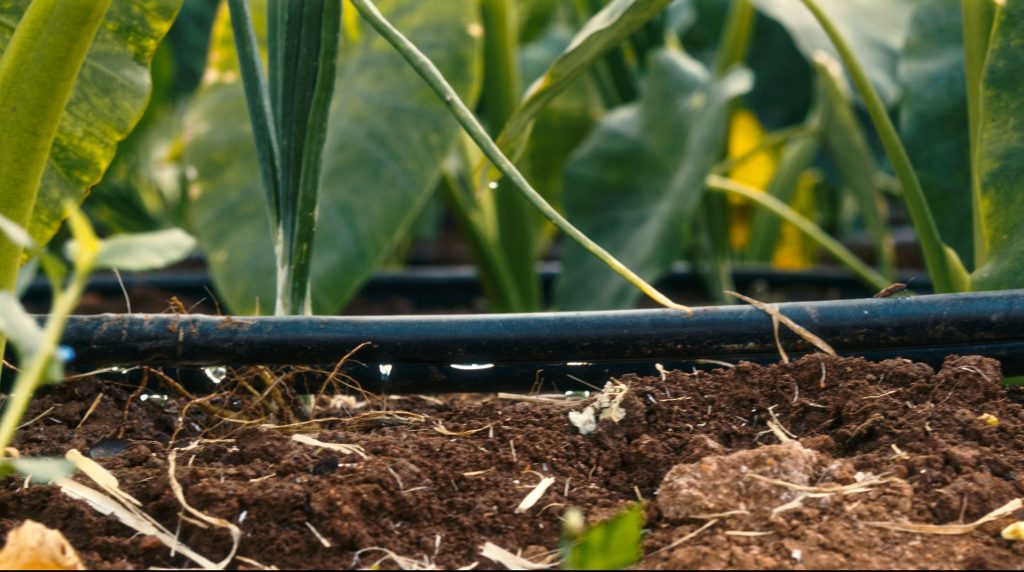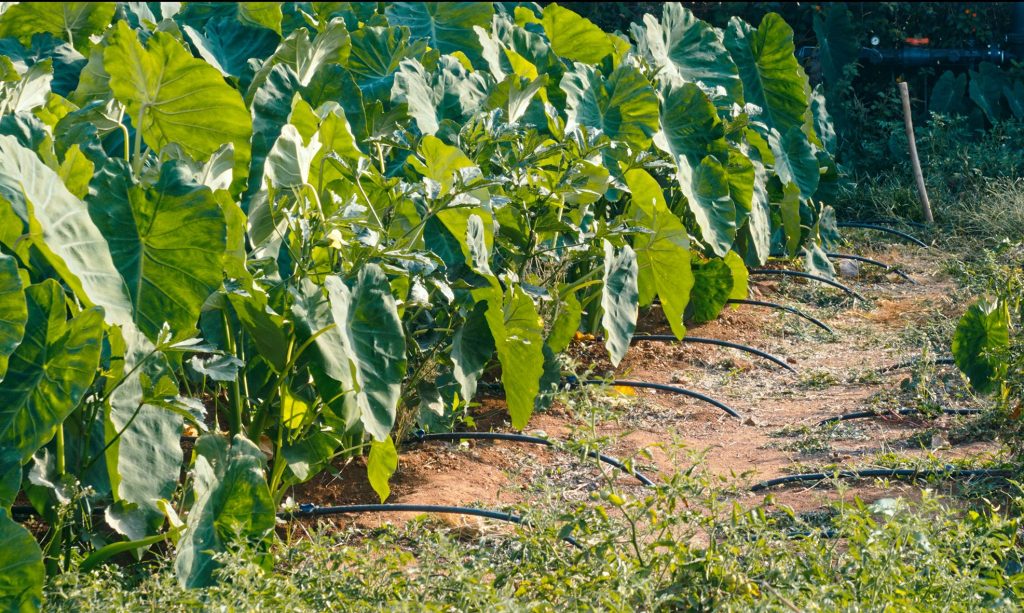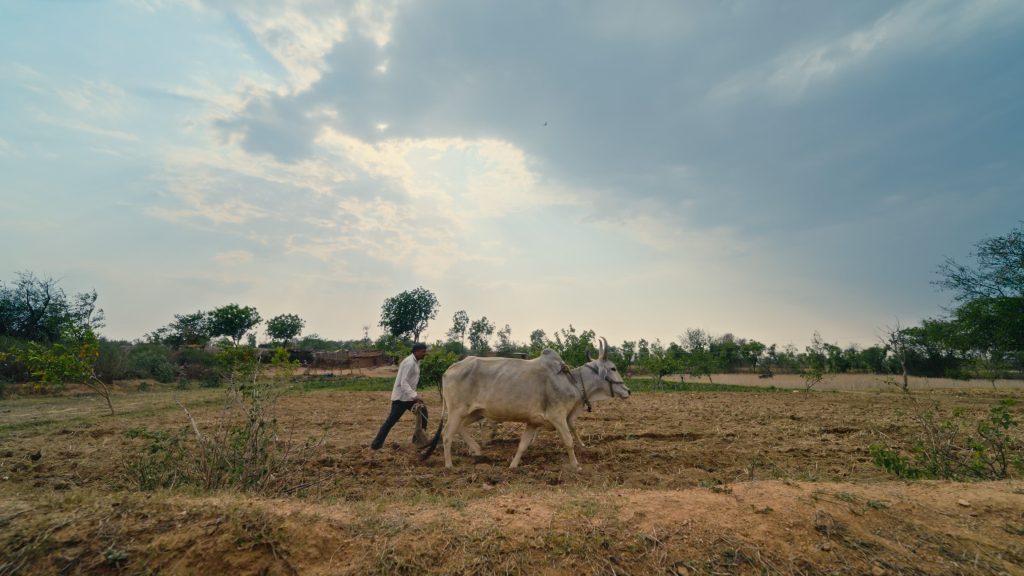THE PRAGATI ACCELERATOR,
UTTAR PRADESH, INDIA
The state of Uttar Pradesh (UP) is a leading producer of a wide variety of crops, including food grains that make up almost 18 percent of India’s overall production (2019–2020). But most of the land is farmed by small and marginal farmers, who are particularly vulnerable to climate change.
To support the state’s agricultural transformation, the UP Accelerator PRAGATI (Program for Agricultural Transformation and Increased Incomes) was approved by a cabinet order in December 2022—Pragati means progress in Sanskrit. The accelerator, which was conceptualized through extensive discussions among 2030 WRG, the government of UP, and key stakeholders from the private sector and civil society, is helping 1 million farmers improve their incomes and enhance sustainable agriculture and water management practices across key crop value chains in the state.
The program is expected to result in the adoption of improved water use efficiency techniques and climate-resilient water management covering an area of 1 million hectares in UP. It focuses on aligning with government activities and leveraging private sector partnerships and financing to reduce the water footprint and agricultural emissions, and improve agricultural productivity and agricultural incomes.
To achieve these objectives, the accelerator promotes the adoption of climate-smart technologies and innovative low-carbon agricultural practices that can enhance agricultural livelihoods and build resilience for small and marginal farmers. The program also helps farmers access these climate-smart solutions and technologies through innovative service delivery models and financing channels. In addition to driving state-wide ecosystem development approaches, the accelerator integrates value-chain focused interventions for the main crops in the state, including rice, sugarcane, mango, millets, and horticulture. In addition, the accelerator focuses on leveraging the power of digital tools and platforms to reduce transaction costs, improve delivery timelines, and enhance transparency and accountability to support farmers through the creation of digital public infrastructure.
A technical support unit for enhancing the institutional capacity of the delivery vehicle is being established with the support of the Bill and Melinda Gates Foundation.

Improving water use efficiency
The focus of this component of the accelerator is to improve agricultural water productivity by increasing the net irrigated area under micro irrigation and expanding the area under climate-smart rice-wheat systems.
The UP Micro Irrigation Project (MIP) was launched by the government of UP’s Department of Horticulture in July 2023 to streamline the process for adopting micro irrigation solutions using an end-to-end digital delivery model that responds to demand and is applicable to all crop types. It also facilitates enhanced private sector participation in last mile delivery of water use efficiency technologies and services. With the support of the UP accelerator, the state’s government has established a project management unit to support the UP-MIP’s implementation and fast track the delivery of services to small and marginal farmers across the state.
A key partner to the Department of Horticulture is the Gujarat Green Revolution Company, which has previously pioneered processes to increase the adoption of micro irrigation in Gujarat.
The launch of the UP-MIP has already resulted in significant economic gains for farmers by reducing unit costs (an average reduction of between 30 percent and 40 percent) and faster delivery timelines (an average delivery timeline reduction of 50 percent) for drip and sprinkler irrigation systems. The government of UP has further reduced the cost of adopting micro irrigation through a tax waiver of 12 percent of the system cost, making it one of the most affordable models in the promotion of micro irrigation in the country. It is anticipated that in FY24 an independent third-party evaluation will be commissioned by the UP accelerator to map the socio-economic, hydrological, and agronomic impacts of the intervention.

Improving agricultural productivity
The accelerator is working closely with the government of UP and the private sector to improve accessibility, affordability, and availability of farm machinery that can improve agricultural productivity and sustainability. 2030 WRG is conceptualizing digital interventions that support streamlined operations for farm equipment sharing services and enable small-scale and marginal farmers to rent equipment through community asset-sharing part-time rental models. In partnership with the Agriculture and Food Global Practice of the World Bank, the UP accelerator is conceptualizing a digital public infrastructure to improve the access and utilization of farm machinery for higher productivity.

Reducing carbon emissions
The program focuses on reducing carbon emissions from agriculture across activities, including low-carbon rice cultivation, micro irrigation, sustainable mechanization, integration of renewable energy in agriculture, and climate-smart agricultural practices across key crop value chains. 2030 WRG is also working with the Climate Warehouse under the World Bank’s Global Practice on Environment and Climate Change to create and support voluntary carbon markets through the use of digital tools and platforms. The Climate Warehouse supports partners with digital reporting and verification for carbon-water savings.

Applying climate smart agriculture to value chains
2030 WRG is working closely with the International Rice Research Institute and private sector partners to increase the adoption of low-carbon rice cultivation through techniques such as direct seeding in rice and wheat. In addition to reducing the water consumption during cultivation, these approaches also result in less methane emissions and reduce the fertilizer requirement. Through the UP accelerator, 2030 WRG is supporting the development of an ecosystem to adopt these low-carbon cultivation approaches by mobilizing funds from the private sector, building capacity at the local level, and supporting access to relevant technologies.
In the mango value chain, 2030 WRG is partnering with The Coca-Cola Foundation to address water security, including protecting water sources, improving efficiencies by promoting micro irrigation, and augmenting soil carbon through improved horticultural practices such as ultra high-density plantations to bring environmental and economic benefits to the mango value chain. This project covers 50,000 farmers in UP.
In a project to reduce the water footprint in sugarcane cultivation, the accelerator is working closely with the UP Sugar Mills Association and over 100 private sugar mills in the state to support micro irrigation, mechanization, and low-carbon practices.
In keeping with the global focus on climate-smart crops such as millets through the ‘International Year of Millets 2023’, the accelerator is also working to build capacity for the cultivation of millets and increase opportunities for revenue generation through processing and linkages to markets for small-scale and marginal farmers in the arid Bundelkhand region in UP.
